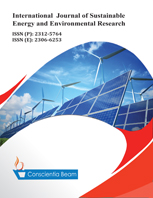Opportunities of artificial intelligence in valorisation of biodiversity, biomass and bioresidues – towards advanced bio-economy, circular engineering, and sustainability
DOI:
https://doi.org/10.18488/13.v13i2.3868Abstract
Artificial intelligence (AI) has rapidly gained notoriety due to fast advances in generative AI. However, this field encompasses a broader set of already mature tools and methods. Here, we explore its broad impact on the valorization of assets directly derived from living organisms, biomass, produced in high quantities and used in non-traditional applications at an industrial scale. For this review, we have explored the trends in scientific publications as well as in patents to measure the current state of the art and the potential for commercial applications. The number of publications and patents is rapidly increasing, showing the penetration of these technologies into chemical and biochemical engineering processes. The ethical considerations of such rapid advances need to be addressed to maximize the benefits and minimize the unintentional collateral negative social impact. Considering AI’s current limitations, biases, and economic impacts will facilitate a better transition to the broad implementation of these new technologies. The valorization of biomass and bioresidues, along with the sustainable use of biodiversity, faces important challenges and obstacles that AI tools are helping to overcome, accelerating basic research and optimizing industrial processes in the development of sustainable energy, and high value-added bioproducts and biomaterials. The application of AI in these fields promises industrial innovation, enhanced efficiency, cost reduction and increased product yields for a global growing market; and thereby promotes Circular Engineering and Advanced Bioeconomy to achieve United Nations Sustainable Development goals in the near future.

